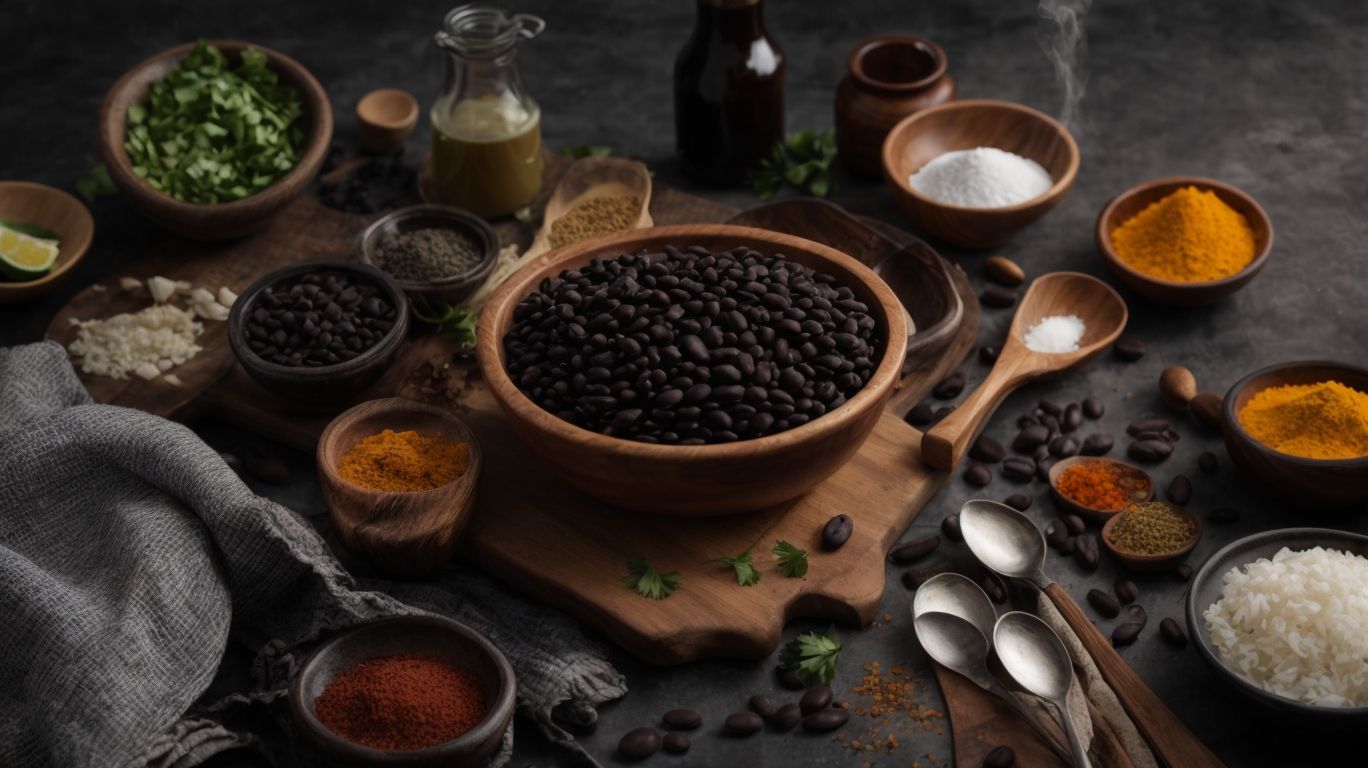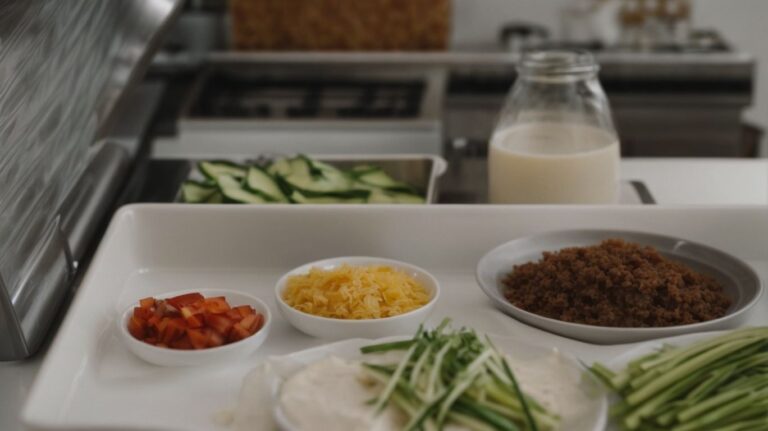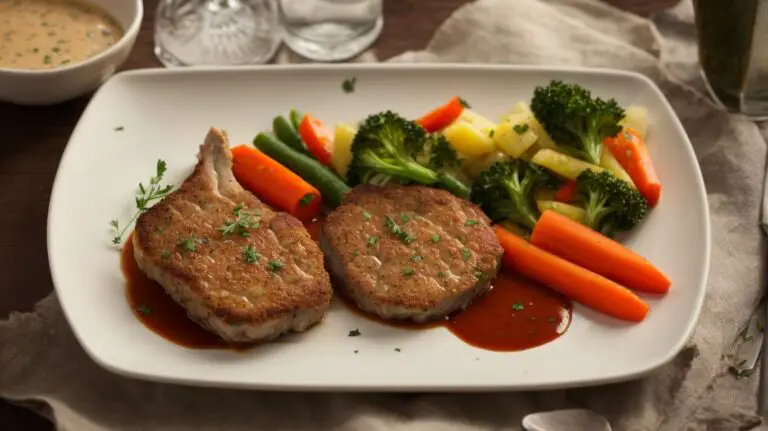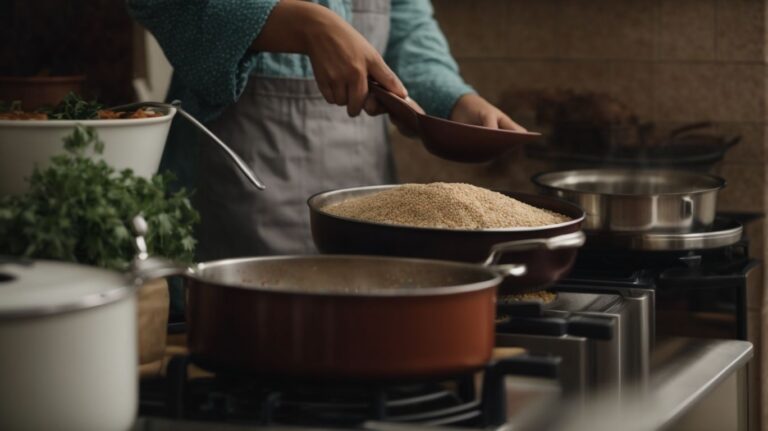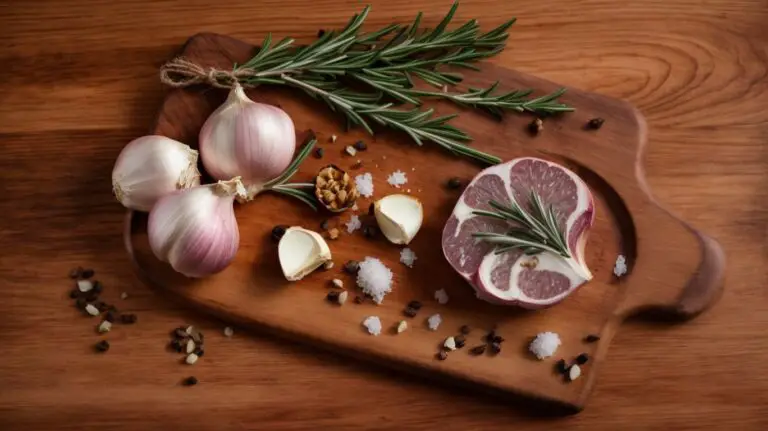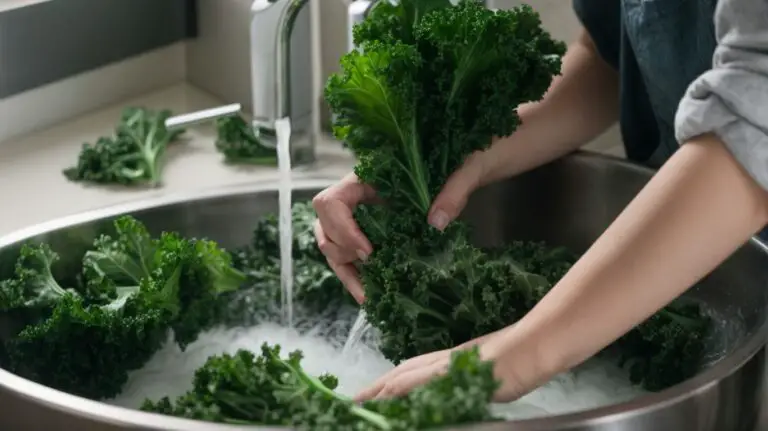How to Cook Black Beans Without Soaking?
Are you looking to unlock the secrets of cooking black beans without the hassle of soaking them beforehand?
In this article, we will explore the ins and outs of preparing and cooking black beans without soaking. From sorting and rinsing the beans to different cooking methods like stovetop, pressure cooking, and slow cooking, we’ve got you covered.
Plus, we’ll share some handy tips to ensure your black beans turn out perfectly every time. Stay tuned for some delicious recipes using cooked black beans!
Key Takeaways:
What Are Black Beans?
Black beans are a type of legume that are commonly used in various cuisines worldwide.
Known for their dark color and rich earthy flavor, black beans are highly nutritious and contain a good amount of protein, fiber, and essential vitamins and minerals. They are a wonderful addition to vegetarian and vegan diets as they provide a plant-based source of protein. Black beans are versatile in cooking and can be used in soups, salads, burritos, enchiladas, and even brownies, making them a must-have in any pantry. With their ease of preparation and ability to absorb flavors well, they are perfect for creating simple recipes that are both delicious and nutritious.
Why Should You Cook Black Beans Without Soaking?
Cooking black beans without soaking can help retain their natural flavor and texture while reducing prep time.
Along with preserving the bean’s natural flavors, opting to cook black beans without soaking can also result in a more robust and concentrated taste, as the beans absorb the flavors of the seasoning and vegetable broth more effectively during the cooking process.
This method saves time and makes the cooking process more efficient and straightforward, as there is no need to plan ahead for soaking, making it a convenient option for quick and easy meals.
How to Prepare Black Beans for Cooking?
To prepare black beans for cooking, start by sorting and rinsing the beans to remove any debris or impurities.
Once you have sorted the black beans, place them in a colander and rinse them thoroughly under cold running water to eliminate any dirt or residues. This step also helps to wash away excess starch.
- After rinsing, transfer the beans to a large pot and cover them with vegetable broth or water, ensuring they are fully submerged.
- Add a couple of whole garlic cloves, cumin seeds, quartered onion, a few chipotle peppers for a smoky flavor, and a piece of kombu seaweed to enhance the beans’ digestibility.
Step 1: Sorting and Rinsing the Beans
The first step in preparing black beans for cooking is to carefully sort through them to remove any foreign objects or damaged beans.
This sorting process ensures that only high-quality beans are used, which significantly impacts the overall taste and texture of the dish. Removing any debris or defective beans also helps prevent any unwanted flavors from affecting the final product.
Once the sorting is complete, it is essential to rinsing the beans thoroughly before cooking. This can be done by placing the beans in a colander and washing them under cold running water to remove any dirt or residue. Some people even opt to soak the beans overnight in the refrigerator or using a Brita to ensure they are clean and ready for cooking. By following these steps, you can guarantee that your black beans will contribute to a delicious and nutritious meal.
Step 2: Preparing the Beans for Cooking
After sorting and rinsing the black beans, proceed to season them with ingredients like garlic, cumin, and onion to enhance their flavor profile.
To further enrich the taste of the black beans, consider infusing them with smoky chipotle peppers and a hint of tomato paste for depth. Simmer the seasoned beans in a rich vegetable broth to develop a robust base. Add a small piece of kombu seaweed during cooking to enhance umami flavors. Adjust the seasoning by sprinkling a pinch of salt and a squeeze of fresh lemon juice just before serving, balancing the flavors to perfection.
How to Cook Black Beans Without Soaking?
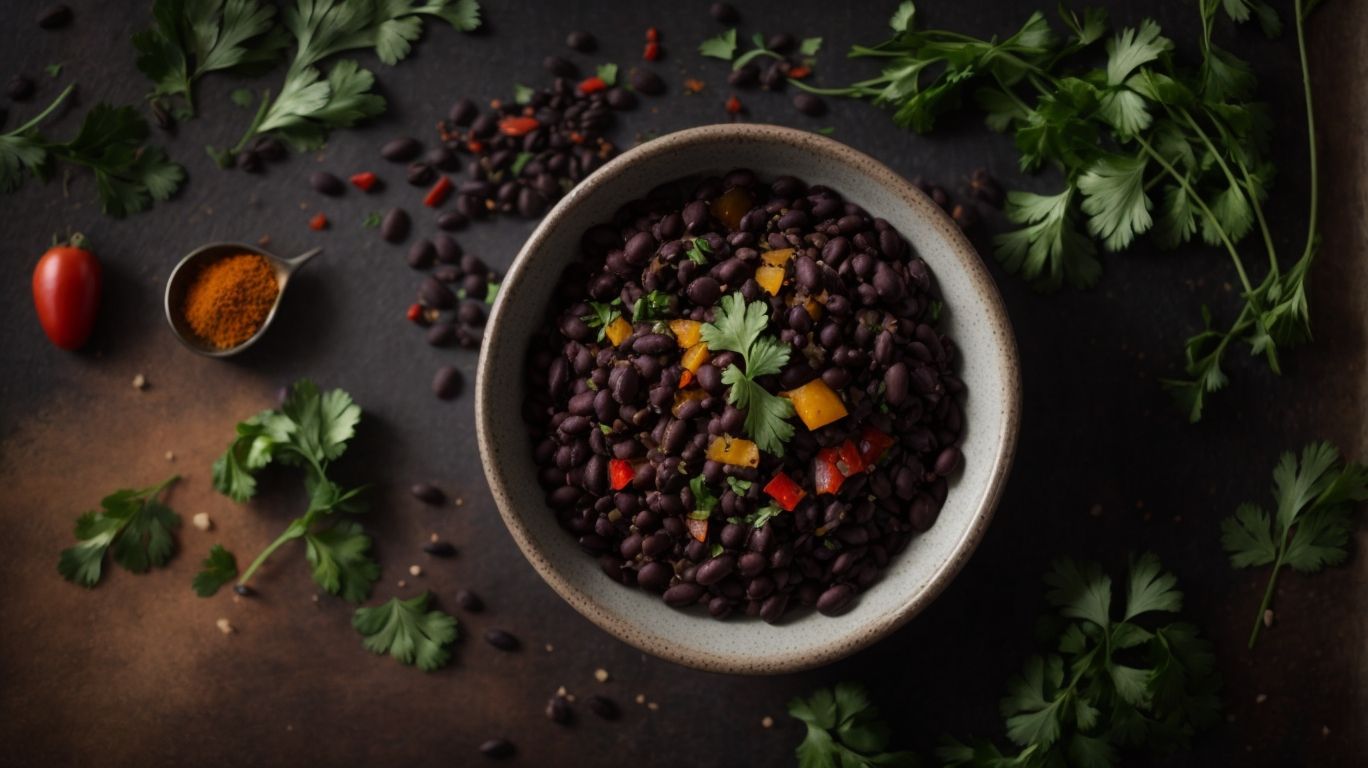
Credits: Poormet.Com – Peter Sanchez
Cooking black beans without soaking is a simple and effective way to prepare delicious beans that are tender and flavorful.
One popular method for cooking black beans without soaking is using a stovetop. Start by rinsing the beans in a colander under cold water to remove any debris. Then, place the beans in a pot with water or broth, bring to a boil, and reduce to a simmer while adding your favorite seasonings like adobo sauce. Let the beans cook for about an hour, stirring occasionally until they are tender.
Method 1: Stovetop Cooking
Stovetop cooking is a traditional method for preparing black beans, where they are simmered in water until they reach a tender consistency.
To achieve perfectly cooked black beans on the stovetop, start by rinsing the beans thoroughly under cold water to remove any dirt or debris. Then, in a large pot, add the rinsed beans and water in a 3:1 ratio, covering the beans by at least 2 inches.
Bring the pot to a gentle boil, then reduce the heat to a simmer and cover with a lid, allowing the beans to cook for about 1 to 1.5 hours. Ensure to stir occasionally and add more water if necessary to keep the beans submerged.
Once the beans are tender but not mushy, season them with salt and any desired spices or herbs for added flavor. These perfectly cooked black beans can be used in a variety of dishes, from salads to delicious veggie burgers.
Method 2: Pressure Cooking
Pressure cooking black beans can significantly reduce the cooking time while infusing them with the flavors of chipotle peppers and adobo sauce.
Pressure cooking helps to retain more nutrients compared to traditional cooking methods, thanks to the sealed environment that locks in vitamins and minerals. By adding kombu, a type of dried seaweed rich in glutamic acid, into the pressure cooker along with the beans, you can enhance their umami flavor profile. The seasoning is also more intense and evenly distributed throughout the beans due to the high pressure environment which allows for quicker absorption. With minimal prep time and hands-off cooking, pressure cooking black beans is a convenient and effective way to enjoy this nutritious legume in a variety of dishes.
Method 3: Slow Cooking
Slow cooking black beans allows them to absorb the flavors of seasonings and vegetable broth, resulting in a rich and savory dish.
This gradual infusion of flavors is what makes slow-cooked black beans a versatile ingredient, perfect for enhancing dishes like burrito bowls, tacos, and nachos. As the beans simmer gently with ingredients such as onion, garlic, and cumin, their texture gradually transforms into a velvety tenderness.
Tips for Cooking Black Beans Without Soaking
When cooking black beans without soaking, consider adding acidic ingredients and using fresh beans for optimal flavor and texture.
Acidic components like tomatoes, vinegar, or lime juice can help tenderize the beans and enhance their overall taste. You can also season the beans with a pinch of salt to bring out their natural flavors. For added depth, try incorporating cumin powder which pairs wonderfully with black beans. To maintain freshness, store any leftovers in an airtight container in the refrigerator, ensuring they stay flavorful for several days. Keep the cooking temperature low and simmer gently to prevent the beans from becoming mushy or overcooked.
Tip 1: Add Acidic Ingredients
Adding acidic ingredients like lemon juice or tomato paste to your black beans can help enhance their overall flavor profile and tenderize them during cooking.
When you introduce acidic components, they not only bring a subtle tangy twist to the earthy black beans but also serve a crucial role in breaking down the complex fibers of the legume, resulting in a smoother texture.
Additionally, garlic, cumin, and a pinch of salt can further elevate the taste, creating a rich and well-balanced dish. The marriage of these flavors creates a savory symphony that transforms a simple bean dish into a culinary delight, perfect for both everyday meals and special occasions.
Tip 2: Use Fresh Beans
Opting for fresh black beans over dried ones can result in a more vibrant and flavorful dish, especially when cooking without soaking.
When using fresh black beans, the natural moisture content adds an extra layer of succulence to the dish, ensuring it stays moist and tender throughout the cooking process. Fresh beans tend to have a firmer texture, providing a satisfying mouthfeel in every bite. Their quick cooking time also saves you precious minutes in the kitchen, making them a convenient choice for busy weeknight meals.
Tip 3: Cook at a Low Temperature
Cooking black beans at a low temperature for an extended period can result in tender and flavorful beans that are perfect for various dishes.
By simmering black beans slowly using a stew burner, you allow the beans to gradually soften without losing their shape, enhancing their natural creaminess and richness.
This gentle cooking method helps preserve the delicate texture of the beans, making them ideal for salads, soups, or as a standalone side dish.
When paired with ingredients like chipotle peppers, garlic, and onions during the cooking process, the low-temperature approach allows the flavors to meld together harmoniously, creating a deeply satisfying taste profile.
How to Use Cooked Black Beans?
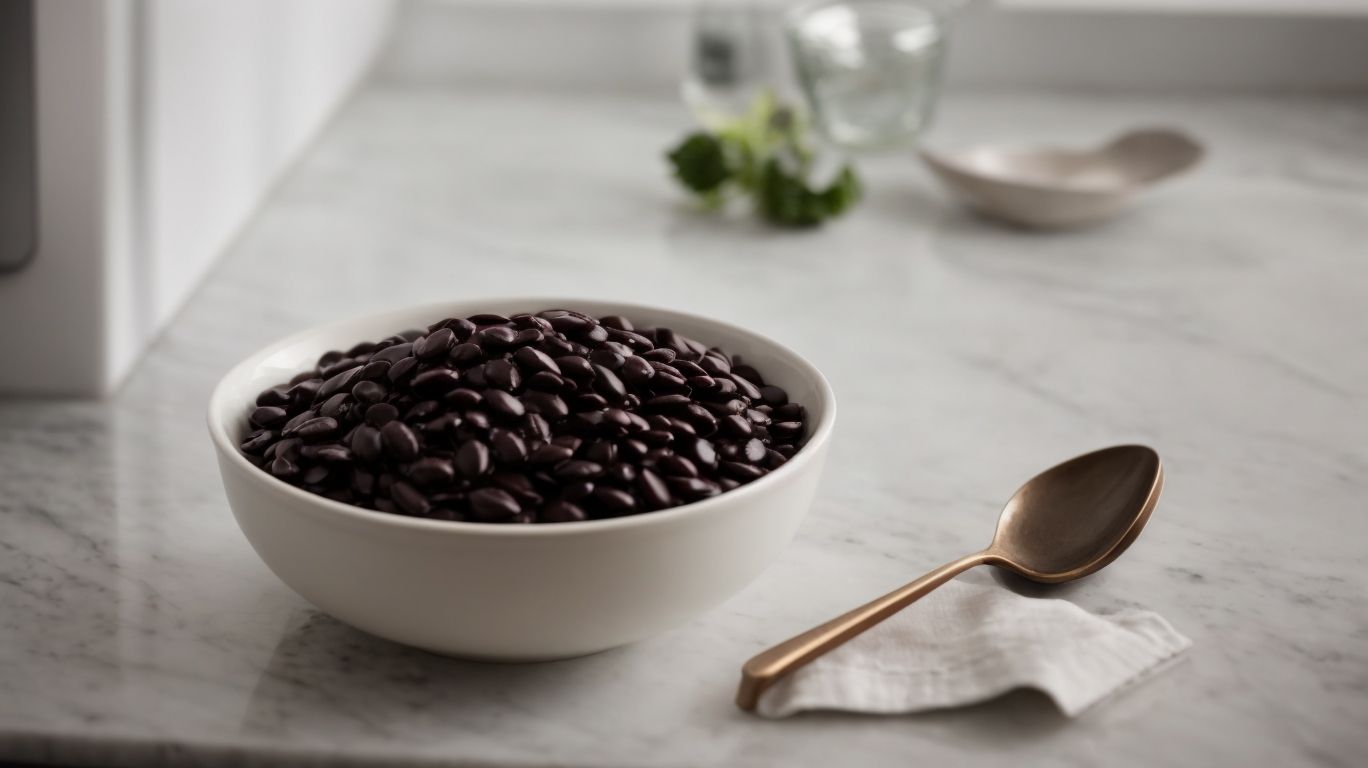
Credits: Poormet.Com – Roger Campbell
Once you have cooked black beans, you can use them in a variety of dishes such as black bean soup, black bean and corn salad, and black bean and rice bowls.
For a flavorful twist, sauté some onions, garlic, and cumin before adding the black beans to create a rich base for your dishes. Transform those beans into a hearty black bean chili by simmering them with tomatoes, vegetable broth, and your favorite spices. Serve the chili topped with a dollop of sour cream and fresh coriander for a comforting meal. You can also mash the black beans with some seasonings and form them into patties to make delicious vegetarian black bean burgers. These versatile legumes are the perfect ingredient for elevating your favorite recipes!
Recipe 1: Black Bean Soup
Black bean soup is a hearty and flavorful dish made with cooked black beans, vegetable broth, and a blend of seasonings like garlic, cumin, and onion.
To begin making this delicious soup, start by sautéing chopped onions and minced garlic in a pot until fragrant. Then, add the cooked black beans and vegetable broth, allowing the flavors to meld together as the mixture simmers.
Season generously with cumin, chili powder, and a pinch of salt and pepper to enhance the depth of flavors. For extra richness, you can also incorporate a splash of citrus juice or a dollop of sour cream.
Continue to simmer the soup over low heat until the beans are tender and the broth has thickened slightly. Before serving, garnish with fresh cilantro, a drizzle of olive oil, and a sprinkle of grated cheese for an added touch of indulgence.
Recipe 2: Black Bean and Corn Salad
Black bean and corn salad is a refreshing and nutritious dish that combines cooked black beans, sweet corn, and a zesty dressing for a burst of flavor.
If you want to prepare this delicious salad at home, start by rinsing the black beans under cold water to remove any excess salt. Then, drain the corn and mix it with the beans in a large bowl. Next, mince a couple of cloves of garlic finely and add them to the bean and corn mixture for an extra kick of flavor.
For the dressing, combine olive oil, lime juice, cumin, and a pinch of salt and pepper in a separate bowl. Drizzle the dressing over the salad, toss everything together gently, and let it sit in the fridge for at least an hour to allow the flavors to meld. Serve chilled and enjoy the fresh and vibrant flavors of this black bean and corn salad!
Recipe 3: Black Bean and Rice Bowls
Black bean and rice bowls are a versatile and satisfying meal option that combines cooked black beans, fluffy rice, and a variety of seasonings for a delicious dish.
For an extra kick of flavor in your black bean and rice bowls, consider sautéing diced onions and fragrant cumin in a skillet before mixing them into the beans and rice. This step enhances the depth of taste and adds a wonderful aroma to the dish. If you’re looking to incorporate some protein, try adding sliced grilled veggie burgers to the bowls or even some avocado slices for creaminess. To serve, garnish with fresh cilantro, a squeeze of lime juice, and a dollop of creamy yogurt for a delightful finish.
Frequently Asked Questions
How to Cook Black Beans Without Soaking?
Black beans are a versatile and nutritious ingredient, but sometimes we forget to soak them ahead of time. If you’re wondering how to cook black beans without soaking, here are some answers to common questions:
Can I cook black beans without soaking them first?
Yes, you can! While soaking black beans can help reduce cooking time and make them easier to digest, it is not necessary. You can still achieve delicious and tender black beans without soaking.
How much longer does it take to cook unsoaked black beans?
Cooking unsoaked black beans will take about 1.5-2 hours, depending on the cooking method and the age of the beans. It may take longer than cooking pre-soaked beans, but the results are still worth it.
What is the best method for cooking unsoaked black beans?
The best method for cooking unsoaked black beans is to simmer them on the stovetop. Simply cover the beans with water or broth, bring to a boil, then reduce to a simmer and cook until tender. You can also use a pressure cooker or slow cooker for even faster results.
Do I need to add anything to the cooking water?
No, you do not need to add anything to the cooking water when cooking unsoaked black beans. However, you can add some flavor by using broth instead of water or adding herbs and spices to the pot.
How can I tell when unsoaked black beans are done cooking?
To test if unsoaked black beans are done cooking, simply taste a few beans. They should be tender and creamy, not crunchy or hard. If they are still firm, continue cooking until they reach the desired texture.
Can I freeze leftover unsoaked black beans?
Yes, you can freeze leftover unsoaked black beans for later use. Let them cool completely, then transfer them to an airtight container or freezer bag. They can last for up to 6 months in the freezer.

